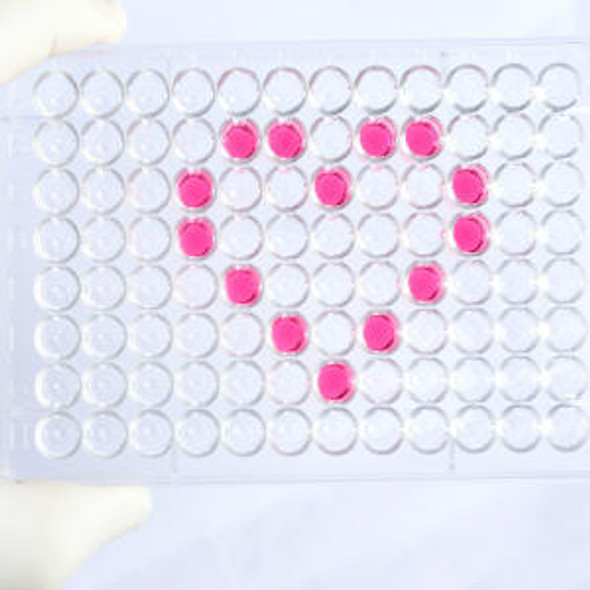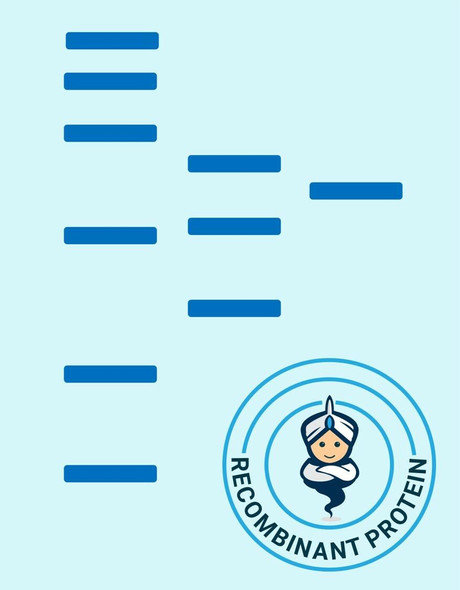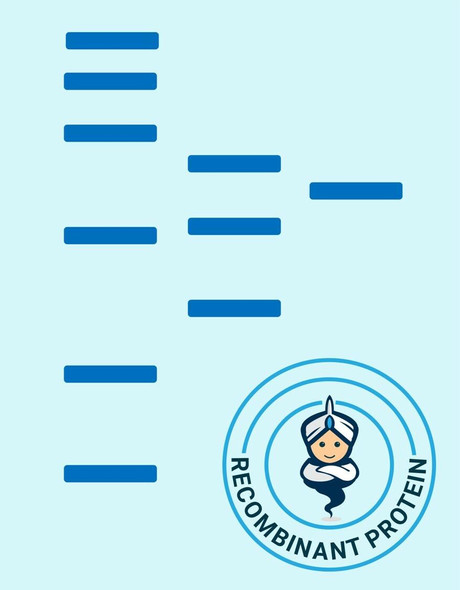Human PSIP1 Recombinant Protein (RPPB4301)
- SKU:
- RPPB4301
- Product type:
- Recombinant Protein
- Size:
- 100ug
- Species:
- Human
- Target:
- PSIP1
- Synonyms:
- PC4 and SFRS1 Interacting Protein 1
- Lens Epithelium-Derived Growth Factor
- Transcriptional Coactivator P75/P52
- Dense Fine Speckles 70 KDa Protein
- Source:
- Sf9 Insect cells
- Uniprot:
- O75475
Frequently bought together:
Description
| Product Name: | Human PSIP1 Recombinant Protein |
| Product Code: | RPPB4301 |
| Size: | 100µg |
| Species: | Human |
| Target: | PSIP1 |
| Synonyms: | PC4 and SFRS1 Interacting Protein 1, Lens Epithelium-Derived Growth Factor, Transcriptional Coactivator P75/P52, Dense Fine Speckles 70 KDa Protein, CLL-Associated Antigen KW-7, DFS 70, PSIP2, DFS70, LEDGF, PC4 And SFRS1 Interacting Protein 2, Transcriptional Coactivator P52/P75, PAIP, P52, P75, PSIP1. |
| Source: | Sf9 Insect cells |
| Physical Appearance: | Sterile Filtered clear solution. |
| Formulation: | PSIP1 is supplied in 20mM HEPES buffer pH-7.6, 250mM NaCl and 20% glycerol. |
| Stability: | Store at 4°C if entire vial will be used within 2-4 weeks. Store, frozen at -20°C for longer periods of time. Avoid multiple freeze-thaw cycles. |
| Purity: | Greater than 80.0% as determined by SDS-PAGE. |
PC4 and SFRS1 Interacting Protein 1 (PSIP1) is a transcriptional coactivator involved in neuroepithelial stem cell differentiation and neurogenesis. PSIP1 is also involved particularly in lens epithelial cell gene regulation and stress responses. PSIP1 has a significant role in lens epithelial to fiber cell terminal differentiation. In addition, PSIP1 plays a protective role during stress-induced apoptosis. Furthermore, PSIP1 is a cellular cofactor for lentiviral integration.
Recombinant Human PSIP1 produced in SF9 is a glycosylated, polypeptide chain having a calculated molecular mass of 61,546 Dalton. PSIP1 is expressed with a 10xHis tag at N-terminus and purified by proprietary chromatographic techniques.
| UniProt Protein Function: | Transcriptional coactivator involved in neuroepithelial stem cell differentiation and neurogenesis. Involved in particular in lens epithelial cell gene regulation and stress responses. May play an important role in lens epithelial to fiber cell terminal differentiation. May play a protective role during stress-induced apoptosis. Isoform 2 is a more general and stronger transcriptional coactivator. Isoform 2 may also act as an adapter to coordinate pre-mRNA splicing. Cellular cofactor for lentiviral integration. |
| UniProt Code: | O75475 |
| NCBI GenInfo Identifier: | 68565853 |
| NCBI Gene ID: | 11168 |
| NCBI Accession: | O75475.1 |
| UniProt Secondary Accession: | O75475,O00256, O95368, Q6P391, Q86YB9, Q9NZI3, Q9UER6 D3DRI9, |
| UniProt Related Accession: | O75475 |
| Molecular Weight: | 76; 51; 45 kDa |
| NCBI Full Name: | PC4 and SFRS1-interacting protein |
| NCBI Synonym Full Names: | PC4 and SFRS1 interacting protein 1 |
| NCBI Official Symbol: | PSIP1 |
| NCBI Official Synonym Symbols: | p52; p75; PAIP; DFS70; LEDGF; PSIP2 |
| NCBI Protein Information: | PC4 and SFRS1-interacting protein |
| UniProt Protein Name: | PC4 and SFRS1-interacting protein |
| UniProt Synonym Protein Names: | CLL-associated antigen KW-7; Dense fine speckles 70 kDa protein; DFS 70; Lens epithelium-derived growth factor; Transcriptional coactivator p75/p52 |
| Protein Family: | PC4 and SFRS1-interacting protein |
| UniProt Gene Name: | PSIP1 |










